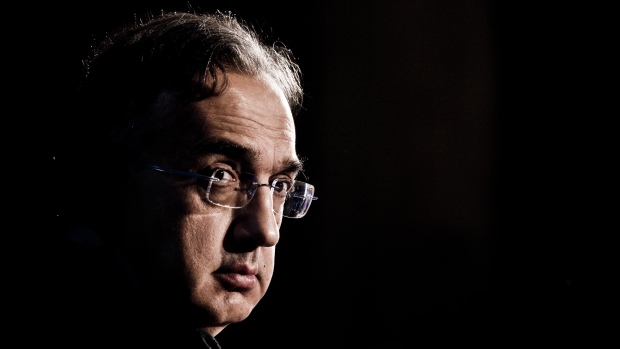Jul 26, 2018
Fiat Chrysler claims 'no knowledge of the facts' of Marchionne's illness
, Bloomberg News

Fiat Chrysler Automobiles NV said it had “no knowledge of the facts” relating to the health of former Chief Executive Officer Sergio Marchionne in the period leading up to a shoulder surgery this summer and his subsequent death on Wednesday.
Marchionne was seriously ill for more than a year before he died, according to the hospital that treated him. His condition had not been made public to shareholders of the companies he ran, including Fiat Chrysler and Ferrari SpA.
“On Friday, July 20, the company was made aware with no detail by Mr. Marchionne’s family of the serious deterioration in Mr. Marchionne’s condition and that as a result he would be unable to return to work,” the company said in a statement Thursday, following the hospital’s announcement. Fiat Chrysler “promptly took and announced the appropriate action the following day.”
On the Friday, the company denied a report that top managers were preparing to meet to choose a successor. In fact, its board was preparing to meet the next day, to do exactly that.
Marchionne’s unexpected death and the lack of information released by the company have generated media speculation about how much the company knew and what it should have disclosed. University Hospital Zurich said Thursday it released the statement to dispel “rumors in the media” about his medical treatment.
“Due to serious illness, he had been the recipient of recurring treatment for more than a year,” the hospital said in a statement. “Although all the options offered by cutting-edge medicine were utilized, Mr. Marchionne unfortunately passed away.”
- Sergio Marchionne, CEO who steered Fiat Chrysler, dies at 66
- Sergio Marchionne remembered as a ‘tireless leader’ and ‘auto industry legend’
- Marchionne's transformative Fiat Chrysler tenure: Timeline
IN MEMORIAM: SERGIO MARCHIONNE
The turn of events with Marchionne serves as a reminder that, when the future of a top corporate leader is concerned, health isn’t always a private matter.
A seriously ill CEO presents corporate boards with a range of complex questions about what to tell the public and when, said Doug Chia, the executive director of the Governance Center at the Conference Board, a U.S. business think tank.
“Frankly it’s a tricky situation, because there are medical privacy issues here and it’s a very personal thing,” he said. While investors are right to expect to be informed when a leader’s future is at risk, “it’s just very difficult to judge when does that point come,” he said.
Marchionne was replaced as chief executive officer of the two automakers and as chairman of Ferrari and of CNH Industrial NV on Saturday. Exor NV, the Agnelli family holding company that controls the three companies, confirmed on Wednesday that he died, offering no further elaboration.
“Sergio Marchionne, man and friend, is gone,” John Elkann, the Agnelli scion and chairman of Exor, Fiat Chrysler and Ferrari, said in the July 25 statement. “My family and I will be forever grateful for what he has done.”
Before last week, the only communication issued by either company about Marchionne’s health -- after an Italian website reported that he was hospitalized -- was on July 5. In a statement that day, Fiat Chrysler said the CEO had undergone a shoulder operation for an unspecified ailment that would require only a “short period of convalescence.” He had last been seen in public on June 26, at an event in Rome.


